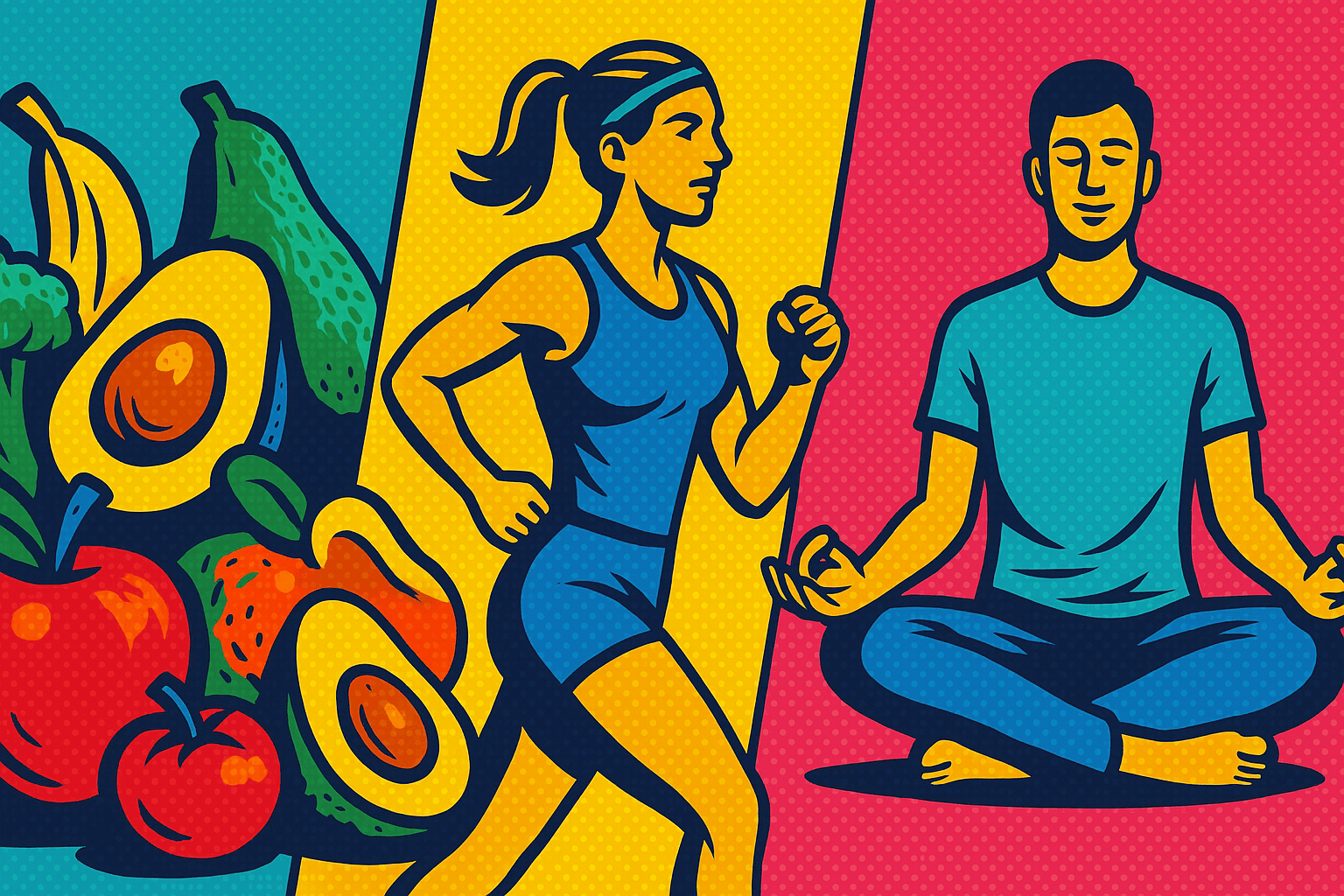EMBRACING A HEALTHY LIFESTYLE: NUTRITION AND PHYSICAL ACTIVITY AS PILLARS OF WELL-BEING
Published on July 13, 2025

Introduction
A healthy lifestyle supports total well-being through balanced nutrition, regular exercise, mental peace, and sustainable habits. It’s about cultivating enjoyable, long-lasting routines that nourish the body, mind, and spirit. This article explores the science, practical strategies, and long-term benefits of lifestyle change.
The Foundation: A Nutrition Guide for Your Healthy Lifestyle
Nutrition fuels everything from energy to immunity. Focus on whole foods:
fresh fruits and vegetables
lean proteins
whole grains
healthy fats
These support energy levels, tissue repair, and reduce oxidative stress, which accelerates aging and disease.
Mediterranean-style eating—plant-forward with healthy fats—improves heart health and longevity.
Hydration is essential for digestion, nutrient transport, temperature regulation, and brain function.
Mindful eating improves your relationship with food, helps with digestion, and prevents overeating.
The Power of Physical Activity
Exercise is vital for cardiovascular health, metabolic function, musculoskeletal strength, and mental health.
WHO recommends:
150+ minutes/week of moderate activity
or 75 minutes/week of vigorous activity
Include both cardio and strength training for optimal results.
Benefits include:
better insulin sensitivity
prevention of type 2 diabetes
higher metabolic rate
fat loss with lean muscle preservation
Psychological benefits:
release of endorphins
improved mood
reduced anxiety and depression
better sleep quality
Integrating Nutrition and Exercise
Nutrition and movement are synergistic. Balanced meals with:
complex carbs
lean proteins
healthy fats
fuel performance and recovery.
Hydration before, during, and after activity is key.
Check electrolyte balance for long/intense workouts.
Post-workout nutrition optimizes muscle repair and glycogen replenishment.
Mental Well-Being and Lifestyle
Mental and physical health are tightly linked.
Chronic stress and mood disorders impact behavior and metabolic health.
Manage stress with:
mindfulness meditation
deep breathing
yoga
tai chi
Prioritize sleep (7–9 hours/night).
Poor sleep increases hormonal imbalance, appetite dysregulation, and chronic disease risk.
Strong social connections and life purpose improve emotional resilience.
Engaging with friends, family, and community boosts adherence and motivation.
Real-Life Tips for Living a Healthier Lifestyle
Set specific, measurable goals
Incorporate daily movement—stretching, walking, active breaks
Plan meals ahead to avoid poor food choices
Build a support network—family, friends, health groups
Track habits with journals, apps, or wearables
Celebrate progress to stay motivated
Use mindfulness to manage stress
Stay positive—gratitude and self-compassion promote change
Overcoming Barriers
Common obstacles: lack of time, motivation, or resources
Solutions:
HIIT for time efficiency
Apps for reminders
Professional help from dietitians or trainers
Choose activities you enjoy for consistency
Plan meals and shopping to avoid reactive decisions
The Science Behind Lifestyle Changes
Scientific evidence shows diet + exercise is more effective than either alone in improving:
blood pressure
cholesterol
insulin sensitivity
systemic inflammation
This reduces risk of:
heart disease
type 2 diabetes
cancer
cognitive decline
Lifestyle medicine now recognizes these strategies as front-line interventions, reducing medication use and healthcare costs.
Long-Term Benefits and Quality of Life
Healthy living supports emotional and social wellness:
more energy
better cognition
stable mood
greater independence in aging
Healthier habits enhance self-efficacy and long-term happiness.
Environmental and Community Impact
Active transport, sustainable food choices, and community wellness programs benefit both health and the environment.
Eating local, seasonal food and reducing waste lowers our environmental footprint and strengthens social bonds.
Final Thoughts
A healthy lifestyle is a lifelong journey requiring consistency, adaptability, and self-kindness.
Through nourishing food, regular movement, rest, and positive thinking, you can ignite long-term well-being.
Small daily choices build to transformative results.
The most effective lifestyle is one that is joyful and sustainable—tailored to your unique needs and values.








